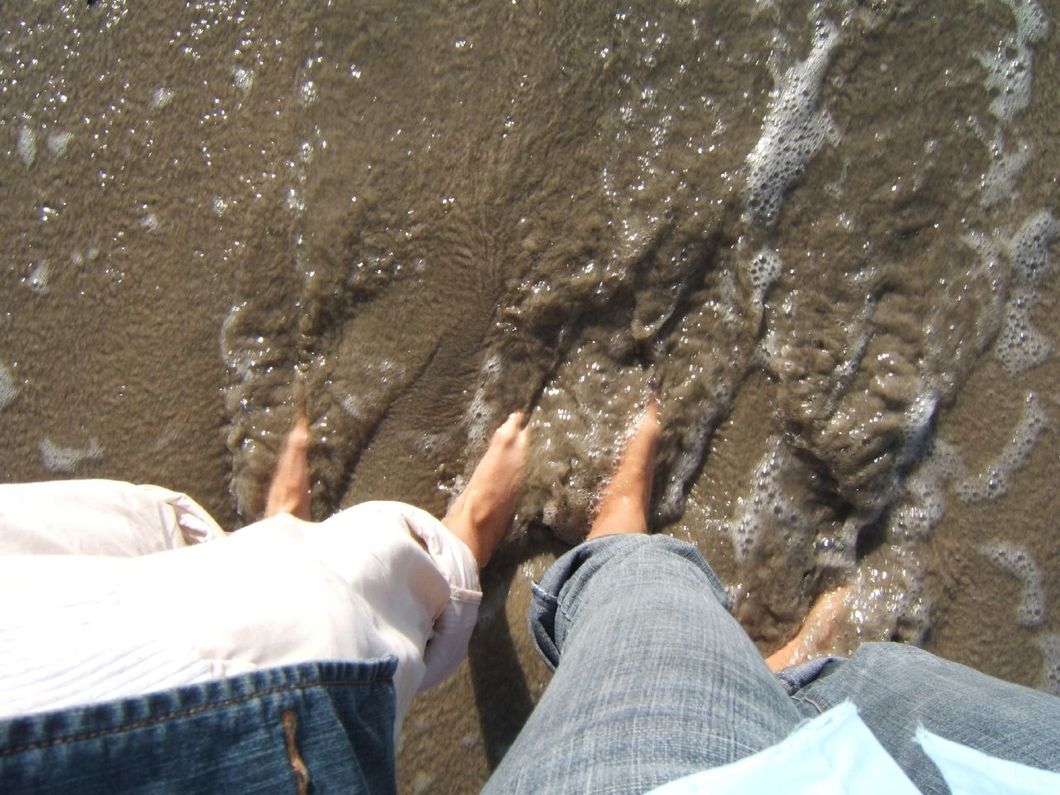What does it mean when we say "I'll be there for you?" Is the term defined on the level of closeness in a relationship? Let's keep romantic relationships out. We can start with family—relatives, where the term itself stems from. A friend, more like a sister, was either always there for me, or should I say... always just with me?
We grew up together. I used to dread Saturdays. Those were the days she spent away from her home at her grandmas. I got bored; I wished she didn't go. I had nothing to do, and when I did I wanted her with me. No matter what I was doing, if she wasn't a part of it then I didn't want to be, either.
I grew up thinking she was somehow dependent on me, that she didn't have fun without me, either. I didn't know that it wasn't her who was dependent on me for fun, for doing stuff together, playing dress up together, sharing the deepest secrets, and spending every moment together.
This whole time, I was dependent on her. Holding her hand while she got a wax, holding her hand while she took swim lessons, getting our first haircut together, holding her hand while she got sick. She held mine, too, but maybe not as tightly.
She held my hand as tight as her strength would permit. I got sick. Very, very sick, to the point where my memory had faded, where my speech was impacted. However, I was still aware and knew what I needed. I needed support—support from my other half.
I wanted her to stay with me through it all. I wanted her to do what I would have done, and I was angry when she wasn't reacting the way I wanted her to. She wasn't with me all the time anymore. I was angry she got busy with school while I had to stay home.
I had questions as to why she wasn't sleeping over, why she wasn't being the same with me. Why did she not come over every day? Were work and school more important? Are they more important? Why was she so distant? Why wasn't she holding my hand? The truth is... she didn't know how, and maybe I didn't, either.
She said she tried. She said sorry and did not know what I wanted her to do, but for me, her definition of "I am here for you" wasn't enough. Hence, the unthinkable happened.
We grew distant.
When we were close, we became one. I didn't see us as different people, stronger or weaker in our ability to handle pain, but now that I saw her from a distance it hit me that the illness was too big for her to compete with. It made her anxious to see me like that; it hurt her to see me like that.
So she did what I wish she hadn't done: she looked away. She distanced herself from me, maybe to heal herself from the pain. Work, school, going out without me, making new friends were an attempt to look away and deal with her own pain.
I guess they helped her, but they made me feel worse. As she indulged in her busy schedule which led her away from me, I kept waiting. Waiting to become a part of that very busy schedule.
As of now, we are trying to make things better and fill the gaps. Although I know things will not go back to the way they were, I'll keep trying. Trying is what I am great at. I hope she does, too.
What does "I'll be there for you" mean? Well, there is no definitive answer. It all depends on how much an individual is willing to do. What I have learned is to use the term wisely when I say it and not expect people to live up to my own definition of it when they say it.














